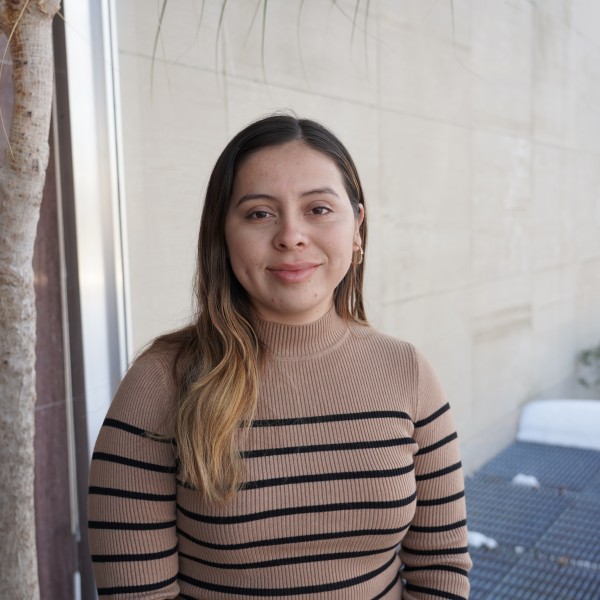Academic focus: Gender equality and social inclusion in agricultural research
Research summary: I study how agricultural research can positively contribute to gender equality and social inclusion. Specifically, I focus on processes and outputs within public sector crop improvement programs. In my research I work on inclusive research and innovation frameworks and develop participatory research methods for gender-responsive priority setting. I also critically analyze methods, norms and power structures in the crop improvement research ecosystem on the global scale.
What do you like to do when you’re not working?
I have two young children, so most of my time not working is spent with them in various forms of play or with care duties. I relax by gardening and weeding, as well as yoga and running. This is more aspirational, but I have a pile of fabric that I have collected from traveling that is just waiting for me to learn how to sew.
What are three adjectives people might use to describe you?
Curious, bold and caring
What (specifically) brought you to Cornell CALS?
I started working for CALS 10 years ago as an extension associate, following my passion for working in international research for agricultural development projects. Now moving to a tenure-track role, CALS felt like home to explore my research and teaching interests around equitable and just international research for agricultural development.
What do you think is important for people to understand about your field?
Doing research on gender equality and social inclusion in agricultural research is particularly challenging, as it is a field where resistance and contention are part of the research experience.
Why did you feel inspired to pursue a career in this field?
I found my career path quite late in life. This makes me a bit of an anomaly as someone with a Ph.D. in molecular biology working on gender equality in agriculture. I made this leap after realizing that what kept me up at night was not plant disease-resistant genes, but the discrimination and exclusion of women I was witnessing in my work. I was born and raised in Turkey, where gender inequality is pervasive, and as a feminist I carried a deep frustration of not being able to do more to change that. When I finally found a way to merge my personal passion with my professional sphere of influence through my work, I knew I found what I would love to do every day.
If you had unlimited grant funding, what major problem in your field would you want to solve?
Unfortunately shifting entrenched gender norms and power structures in agricultural research systems needs a lot more than unlimited funding. That said I would love to test a system where agricultural technology for development grants are matched 1:1 with funding for gender research around these technologies.





